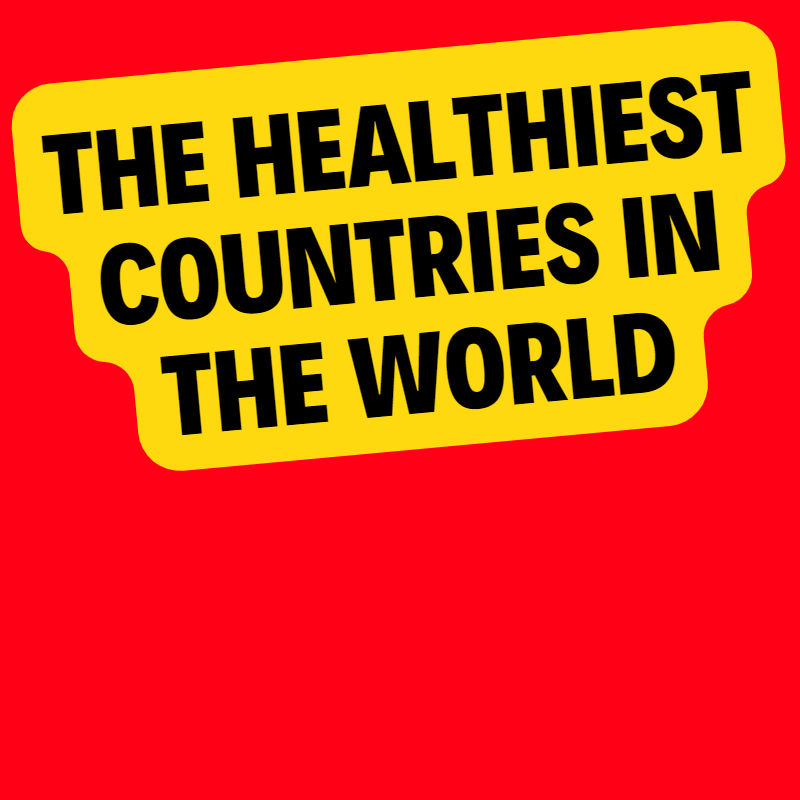In today’s fast-paced world, where health concerns are on the rise, it’s essential to examine the countries that prioritize the well-being of their citizens. Factors such as diet, lifestyle, healthcare systems, and environmental factors contribute to the overall health of a nation. In this article, we explore The Healthiest Countries in the World, specifically focusing on their food choices and how they impact the well-being of their populations.
Factors Influencing Health Rankings
Before diving into the specifics of each country, it’s important to understand the factors that influence health rankings. These include access to quality healthcare, life expectancy, obesity rates, prevalence of chronic diseases, and overall lifestyle choices. However, one of the most significant contributors to good health is a balanced and nutritious diet.
The Mediterranean Diet and its Impact on Health
Topping the list of The Healthiest Countries in the World is often those that embrace the Mediterranean diet. This eating pattern, prevalent in countries such as Greece, Italy, and Spain, emphasizes the consumption of fresh fruits, vegetables, whole grains, legumes, and lean proteins like fish and poultry. Rich in antioxidants, healthy fats, and essential nutrients, the Mediterranean diet has been linked to reduced risks of heart disease, certain cancers, and improved cognitive function.
Japan: The Power of Traditional Japanese Cuisine
Japan, renowned for its longevity, owes much of its health achievements to its traditional cuisine. The Japanese diet typically consists of fresh fish, seaweed, tofu, fermented foods, and steamed rice. These food choices provide essential nutrients like omega-3 fatty acids, vitamins, and minerals, contributing to lower rates of cardiovascular diseases and longer lifespans among the Japanese population.
Iceland: A Focus on Sustainable and Nutrient-rich Foods
Despite its harsh climate, Iceland stands out as a country that prioritizes sustainable and nutrient-rich food sources. With a reliance on locally sourced seafood, lamb, and dairy products, Icelanders benefit from the omega-3 fatty acids found in fish, high-quality protein from lamb, and calcium-rich dairy products. Additionally, the country’s commitment to organic farming and geothermal energy plays a significant role in supporting a healthy food ecosystem.
Sweden: Embracing a Balanced and Varied Diet
Sweden’s approach to food revolves around balance and variety. The Swedish diet incorporates a wide range of whole grains, fruits, vegetables, lean meats, and dairy products. The consumption of fiber-rich foods promotes a healthy digestive system, while lean proteins and dairy provide essential nutrients for overall well-being. Furthermore, Sweden’s emphasis on sustainable and locally sourced ingredients further enhances the nutritional value of their meals.
Singapore: A Fusion of Culinary Delights
Singapore, a melting pot of cultures, offers a diverse culinary landscape that contributes to its status as one of the healthiest countries. With influences from Chinese, Malay, Indian, and Western cuisines, Singaporeans enjoy a wide variety of dishes. The country’s hawker centers, renowned for their affordable and delicious food, showcase a harmonious blend of flavors while maintaining nutritional balance.
Our Biggest Health Challenges
Methodology for Determining the Healthiest Countries
Conclusion
In conclusion, the healthiest countries in the world prioritize their citizens’ well-being through conscious food choices. The Mediterranean diet, traditional Japanese cuisine, sustainable practices in Iceland, balanced diets in Sweden, and the fusion of culinary delights in Singapore all contribute to healthier populations. By adopting similar principles in our own lives, we can strive towards better health and well-being.
FAQs
1. Are these countries the only ones with healthy food choices? No, there are many other countries with healthy food choices. However, these countries have consistently ranked highly in terms of overall health and well-being.
2. Can I adopt the eating patterns of these countries in my own life? Absolutely! Incorporating elements of the Mediterranean diet, Japanese cuisine, or other healthy eating patterns can significantly improve your overall health.
3. Are there specific recipes I can try from these countries? Yes, there are numerous recipes available that showcase the traditional dishes from these countries. Exploring these recipes can introduce you to new flavours and nutritional benefits.
4. How can I incorporate sustainable practices into my diet? You can support local farmers, choose seasonal and organic produce, reduce food waste, and opt for sustainably sourced seafood to promote sustainable practices in your diet.
5. Is it necessary to completely change my diet to improve my health? Not necessarily. Making small, gradual changes can have a positive impact on your health. Start by incorporating more fruits, vegetables, and whole grains into your meals and gradually build on that foundation.

